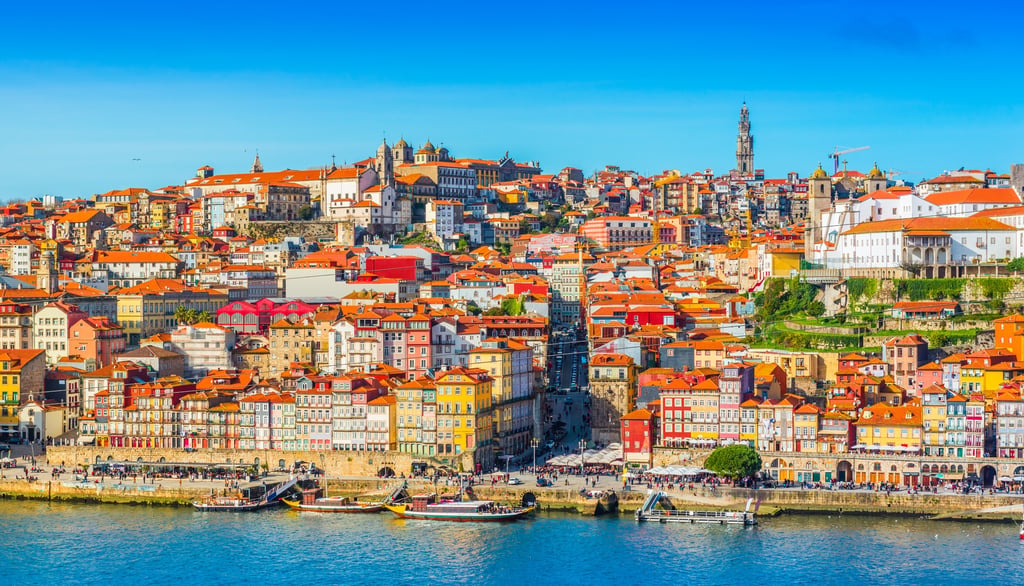Why So Many People Want to Retire in Portugal: A Mediterranean Dream Come True
Portugal has swiftly risen through the ranks of global retirement destinations, consistently topping lists as one of the best places to retire in the world. From its sun-drenched coastlines and charming cities to a cost of living that doesn’t break the bank, Portugal has an irresistible allure for retirees seeking quality of life, safety, and a mild climate. But what exactly makes Portugal such a hot spot for retirement? Is it just the golden beaches and pastel de nata, or is there something more profound behind the migration of retirees to this Iberian gem? Let’s dive deep into why so many people are choosing to spend their golden years in Portugal.
5/2/20255 min read


1. Mild Climate All Year Round
Portugal enjoys one of the most pleasant climates in Europe. With over 300 days of sunshine per year, especially in the southern Algarve region, the country is a haven for those looking to escape harsh winters or rainy weather.
Cities like Lisbon, Faro, and Lagos boast warm summers and gentle winters. Even in January, daytime temperatures in the Algarve can hover around 16–18°C (60–65°F). This temperate weather is not only ideal for outdoor activities but also has health benefits, particularly for those with conditions like arthritis or seasonal affective disorder.
2. Affordable Cost of Living
Portugal offers an impressive quality of life at a fraction of the cost you’d expect in countries like the US, UK, or Germany. Retirees often find that their pensions or savings stretch much further in Portugal.
Groceries, utilities, transportation, and entertainment are notably cheaper. Dining out at a traditional Portuguese restaurant can cost as little as €10–15 for a full meal with wine. Public healthcare, subsidized for residents, is also highly affordable and efficient.
Housing is another big win. Even in coastal areas or charming villages, rent and property prices are reasonable compared to other Western European countries. Retirees can rent a one-bedroom apartment outside Lisbon for as low as €600 per month, or purchase a countryside villa at a modest price.
3. High Quality of Life
Portugal ranks high in global quality of life indexes. It’s a place where life feels less rushed and more balanced. The culture promotes taking your time—enjoying long lunches, taking evening walks, chatting with neighbors, and truly appreciating the small moments.
The Portuguese are known for their friendliness and hospitality. Even in smaller towns, locals often go out of their way to help newcomers feel at home. English is widely spoken in urban and tourist-heavy regions, making integration easier for retirees.
Moreover, Portugal scores consistently high in the Global Peace Index. It is considered one of the safest countries in the world, with low crime rates and political stability.
4. Excellent Healthcare System
Portugal has a robust healthcare system that is both public (Serviço Nacional de Saúde or SNS) and private. EU citizens can access the public system with ease, while non-EU retirees can still qualify through residency permits.
The SNS is funded through taxes and offers services at minimal costs. Consultations, surgeries, and prescriptions are often affordable. Many retirees also opt for private insurance, which offers shorter wait times and access to modern facilities, all at a fraction of the cost of insurance in the US or UK.
Private insurance premiums are relatively low. A comprehensive policy can cost between €50–100 per month, depending on age and coverage.
5. Retirement-Friendly Visa and Residency Options
Portugal’s government has gone out of its way to welcome foreign retirees, making it relatively simple to relocate legally.
The most popular path is the D7 Visa, designed for retirees and those with passive income. It requires proof of a stable income source (such as a pension, rental income, or dividends), and applicants must spend a minimum number of days per year in Portugal.
Once approved, retirees gain residency, access to public healthcare, and the right to bring family members. After five years of residency, one can apply for permanent residency or even Portuguese citizenship.
Portugal is also part of the Schengen Area, allowing residents to travel freely across much of Europe.
6. Tax Incentives for Foreign Retirees
Portugal offers generous tax benefits for foreign retirees through the Non-Habitual Resident (NHR) tax regime. This program grants qualifying individuals a flat tax rate of 10% on foreign pension income for 10 years, and may exempt other forms of income like dividends, royalties, and rental earnings from foreign sources.
This setup can result in significant tax savings, especially for retirees from high-tax countries.
Note: The NHR rules have evolved, so retirees should consult a tax advisor to stay informed about current policies and benefits.
7. A Diverse Range of Places to Retire
Whether you dream of a coastal village, a bustling cultural hub, or a tranquil countryside retreat, Portugal has it all.
The Algarve is the most popular region among retirees. Known for its stunning beaches, golf courses, and English-speaking communities, it offers resort-style living with a relaxed vibe.
Lisbon and Porto, while more urban, offer rich cultural experiences, historic architecture, and vibrant food scenes.
Smaller towns like Évora, Tavira, or Coimbra offer peaceful settings, lower living costs, and authentic Portuguese lifestyles.
The diversity of options allows retirees to find a location that fits their personal preferences and lifestyle goals.
8. Rich Culture and Slow Living
Retiring in Portugal is not just about lower costs or sunny days—it’s also about embracing a different rhythm of life.
Portugal is steeped in tradition. From Fado music echoing through the alleys of Alfama to village festivals and wine harvest celebrations, the country offers a deeply enriching cultural landscape.
Food and drink are central to Portuguese life. Think fresh seafood, homemade soups, locally produced wines, and delectable pastries. The café culture encourages socializing, and local markets offer fresh produce at unbeatable prices.
Life here is slower, more intentional, and focused on well-being and connection.
9. Excellent Transportation and Connectivity
Portugal is well-connected, both domestically and internationally. Major airports in Lisbon, Porto, and Faro offer direct flights to and from major global cities, making it easy for retirees to visit family or host guests.
Public transport is affordable and reliable. Trains and buses connect even small towns to larger urban centers. In cities, metro and tram systems are clean and efficient.
For those who drive, Portugal’s roads are generally in excellent condition, and the country has one of the lowest traffic fatality rates in Europe.
10. Growing Expat and Retiree Communities
There’s comfort in knowing you’re not alone. Portugal’s retiree and expat communities are growing steadily, particularly in the Algarve, Lisbon, and Porto. This makes it easier to make friends, find English-speaking services, and access support networks.
Many areas have English-speaking doctors, international schools (for those with grandchildren or family in tow), and expat meetups. Online forums, social groups, and language exchanges also help with settling in.
Despite the expat presence, Portugal has managed to avoid feeling overly touristy or gentrified in many regions. It strikes a unique balance between welcoming foreigners and preserving its identity.
Final Thoughts
Retiring in Portugal is more than a lifestyle change—it’s a lifestyle upgrade.
With its blend of old-world charm and modern amenities, Portugal offers a peaceful, fulfilling retirement experience rooted in culture, connection, and comfort. The country’s forward-thinking policies, safety, and affordability only add to its appeal.
While no destination is perfect—and it’s important to consider bureaucratic processes, language barriers, and healthcare nuances—Portugal stands out as a retirement haven for those seeking beauty, warmth, and serenity in their later years.
Considering Retirement in Portugal?
If you're thinking about retiring in Portugal, start by researching visa options, visiting different regions, and connecting with current retirees who’ve already made the move. A reconnaissance trip is highly recommended—nothing compares to seeing Portugal’s magic firsthand.
So, whether you dream of sipping wine under olive trees in Alentejo or walking along the cliffs of the Algarve at sunset, Portugal could be the beginning of your next great adventure.
Contact us
Copyright © 2025. Ralnoscape All rights reserved.
Destinations
Resources


Follow us
This website uses affiliate links which may earn a commission at no additional cost to you
